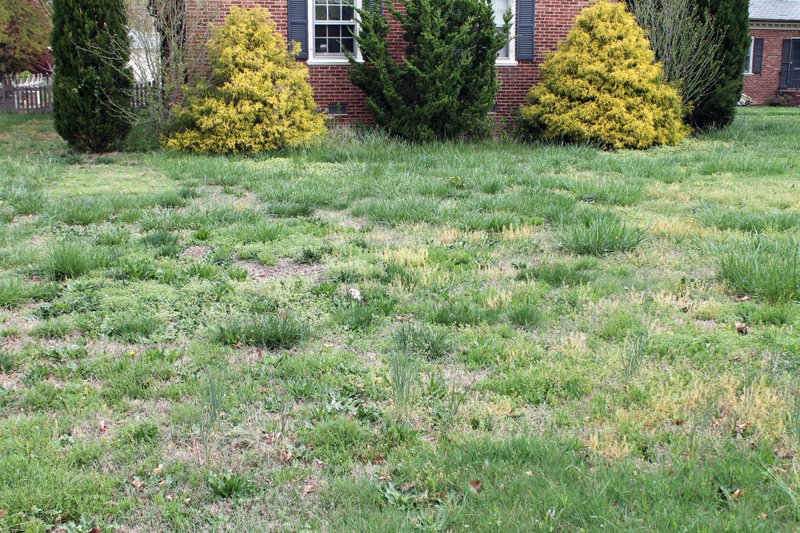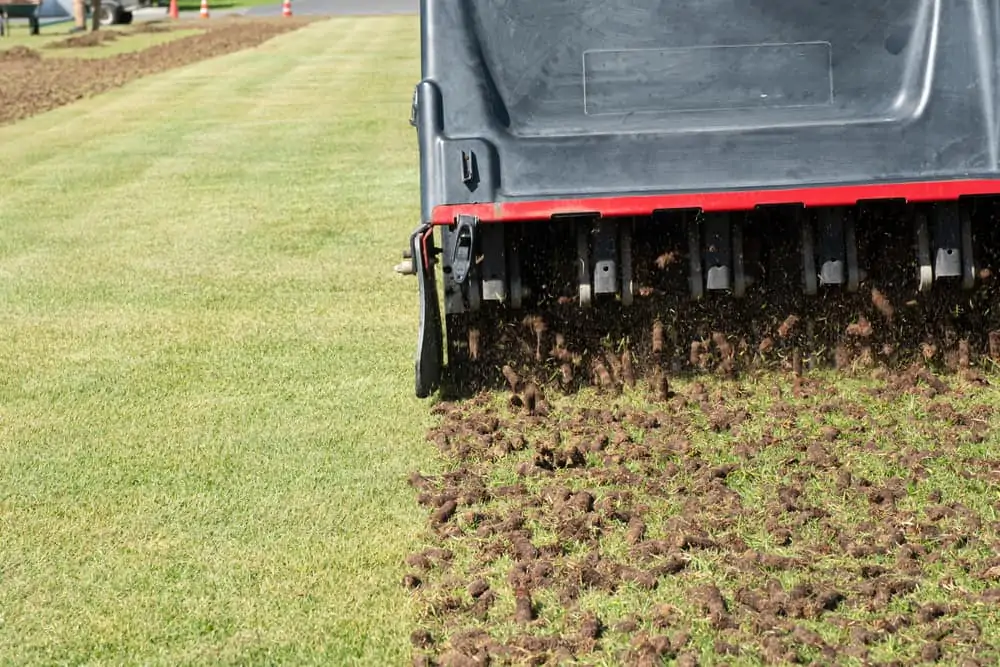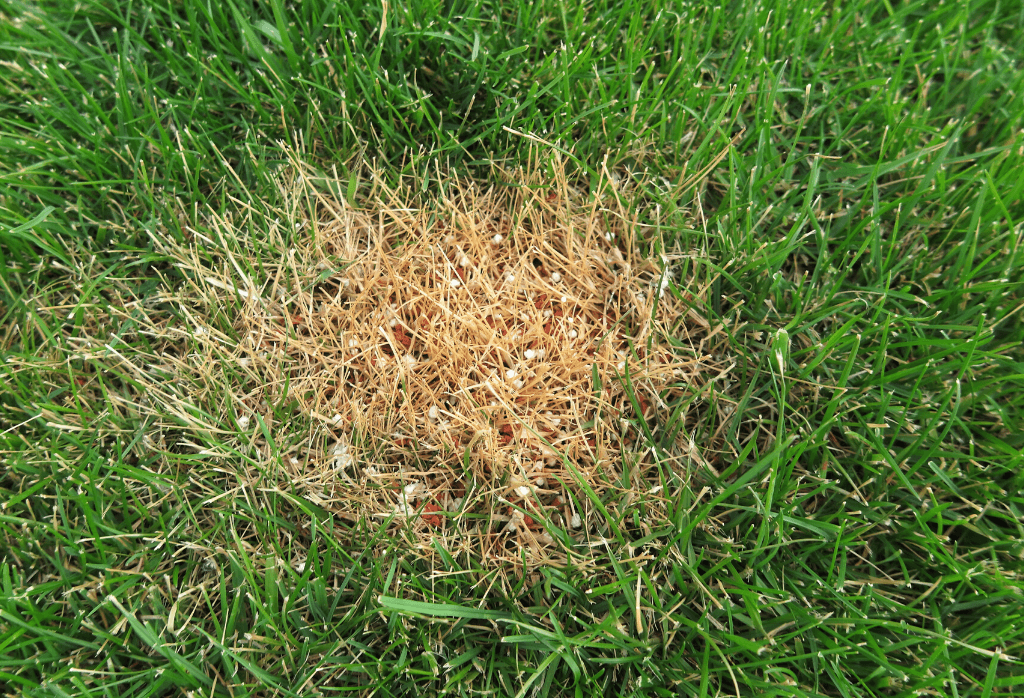Understanding Florida’s Unique Lawn Ecosystem
Florida’s lawn ecosystem is as diverse as its climate, ranging from the humid subtropical regions in the north and central areas to the tropical climate in the south. This unique environmental blend creates a hospitable environment for a wide variety of plant species, including both desirable turfgrasses and less welcome weeds. Understanding this ecosystem is crucial for effective lawn care and weed management.
The state’s high humidity, frequent rainfall, and warm temperatures year-round contribute to rapid growth rates for both grass and weeds. These conditions mean that weeds can quickly become a significant problem if not properly managed. Additionally, Florida’s soil types vary greatly, from sandy soils in coastal areas to richer loam and clay soils inland. This variability affects not only the types of grass that will thrive but also the types of weeds that are likely to invade.
Florida’s lawn ecosystem is also influenced by its unique flora and fauna. The presence of native plants and animals can impact the health and composition of your lawn. For example, certain bird species may spread weed seeds, while beneficial insects can help control pest populations. Understanding these interactions is key to maintaining a healthy lawn.
Given these factors, Florida homeowners face unique challenges in lawn care and weed management. A deep understanding of the local ecosystem, including the types of grass that thrive and the common weeds that invade, is essential. This knowledge forms the foundation for effective weed control strategies, ensuring a lush, healthy lawn that can withstand the challenges of Florida’s environment.
Identifying Common Weeds in Florida Lawns
Florida’s warm climate and high humidity create a unique environment where various weeds thrive alongside native grasses. Identifying common weeds is the first step towards effective management and control. Among the most prevalent Florida lawn weeds are Crabgrass, Dollarweed, Dandelion, and Nutgrass. Each of these weeds presents distinct characteristics that can help in their identification.
Crabgrass, often found in disturbed areas of the lawn, grows quickly in hot, dry conditions. Its light green, coarse leaves spread out from a central point, resembling a crab’s legs, hence the name. Dollarweed, also known as Pennywort, thrives in moist, poorly drained areas. Its round, shiny leaves are easily recognizable and often indicate overwatering or poor drainage.
Dandelions, with their bright yellow flowers, are perhaps the most notorious weeds worldwide. They prefer full sunlight but can grow in a variety of conditions. Their deep taproots make them difficult to eradicate completely. Nutgrass, or Nutsedge, is another challenging weed, identifiable by its tall, thin leaves and yellow-green color. It often indicates overly wet soil conditions.
Understanding the types of grass weeds in Florida is crucial for effective lawn care and maintenance. By recognizing these common invaders, homeowners can take targeted actions to control and prevent weed infestation, maintaining the health and beauty of their lawns. Whether through manual removal, chemical treatment, or cultural practices, the key to controlling weeds in Florida lawns lies in early identification and prompt action.

The Importance of Proper Lawn Maintenance
Maintaining a healthy lawn in Florida is not just about keeping it looking aesthetically pleasing; it’s a crucial step in preventing the invasion and spread of common Florida grass weeds. Proper lawn maintenance involves a series of practices that, when combined, create an environment less conducive to weed growth and more supportive of healthy grass. One of the foundational aspects of lawn care is regular mowing. Keeping your lawn at an optimal height can significantly deter weed infestation by preventing weeds from getting the sunlight they need to thrive. However, it’s essential to avoid cutting the grass too short, as this can stress the grass and make it more susceptible to weeds.
Watering practices also play a vital role in controlling weeds in Florida lawns. Deep, infrequent watering encourages grass roots to grow deeper, making them more resilient and competitive against weeds. Over-watering, on the other hand, can promote the growth of certain types of grass weeds in Florida that prefer moist conditions. Additionally, proper fertilization tailored to your specific type of grass can help it outcompete weeds for nutrients. Using the right type and amount of fertilizer, based on soil testing, can significantly enhance lawn health and weed resistance.
Finally, aeration and dethatching are critical components of a comprehensive lawn care strategy. These practices help improve soil health and reduce compaction, allowing water and nutrients to penetrate more effectively. This creates a stronger, more vigorous lawn that can resist weed invasion more effectively. By understanding and implementing these key lawn maintenance practices, homeowners can significantly reduce the prevalence of weeds in their Florida lawns, leading to a healthier, more resilient lawn.
Organic Weed Control Methods
Organic weed control is a sustainable approach to managing weeds in Florida lawns without the use of chemical herbicides. This method not only helps in controlling weeds but also preserves the health of the soil and the surrounding environment. One effective organic method is hand-pulling, which is most efficient when the soil is moist, as it allows for easier removal of the entire root system of the weed. This method is particularly effective for annual weeds and can be a therapeutic activity for gardeners.
Another organic strategy is the use of mulching. Applying a thick layer of organic mulch on the lawn can suppress weed growth by blocking sunlight, which is essential for weed seed germination. Mulches such as wood chips, straw, or grass clippings can also add nutrients to the soil as they decompose, further enhancing lawn health. Additionally, mulching helps in retaining soil moisture, which is beneficial for the grass but detrimental to weed survival.
Corn gluten meal is a natural pre-emergent herbicide that can be applied to lawns to prevent weed seeds from germinating. It is important to apply corn gluten meal at the right time, typically in early spring, for it to be effective. This method is safe for the environment and does not harm beneficial organisms in the soil.
Finally, promoting a healthy, dense lawn is perhaps the most effective organic weed control method. A thick lawn can outcompete weeds for sunlight, nutrients, and water. Regular mowing, proper fertilization, and adequate watering are crucial in maintaining a healthy lawn that naturally resists weed invasion.
By employing these organic weed control methods, Florida homeowners can manage weeds effectively while also contributing to the sustainability of their local ecosystem.

Chemical Solutions for Stubborn Weeds
When organic methods fall short in controlling stubborn weeds in Florida lawns, chemical solutions often become necessary. It’s crucial to approach chemical weed control with caution, prioritizing products that are effective yet have minimal impact on the environment and non-target plants. The key to successful chemical weed management lies in selecting the right herbicide for the specific type of weed and stage of growth.
Pre-emergent herbicides are a proactive approach, targeting weed seeds before they germinate. This type of chemical solution is ideal for preventing common Florida grass weeds from taking root in the first place. On the other hand, post-emergent herbicides are designed to tackle existing weeds. They can be selective, targeting only certain types of grass weeds in Florida, or non-selective, eliminating any plant they come into contact with. When using non-selective herbicides, precision application is critical to avoid harming desirable plants.
It’s also important to consider the timing of application. Many herbicides are most effective when applied at specific times of the year, often during early growth stages of the weed. Florida’s unique climate means that some weeds may have different growth cycles compared to other regions, so local knowledge and timing are key factors in effective Florida weed management.
Always read and follow the label instructions when using chemical herbicides. Safety for the user, the lawn, and the environment should be the top priority. In some cases, consulting with a professional may be the best course of action to ensure that the chemical solutions are applied safely and effectively, providing a clear path to a weed-free lawn.
The Role of Soil Health in Weed Prevention
Soil health plays a pivotal role in the prevention of weeds in Florida lawns. A healthy, nutrient-rich soil fosters the growth of strong and vigorous grass, which can outcompete common Florida grass weeds for resources. Conversely, poor soil conditions create an ideal environment for weeds to thrive, making Florida weed management more challenging.
Improving soil health begins with regular testing to identify deficiencies in nutrients or pH imbalances. Florida’s sandy soil often lacks essential nutrients needed for healthy lawn growth, making fertilization an important aspect of lawn care. However, it’s crucial to use the right type and amount of fertilizer based on the specific needs of your lawn, as over-fertilization can harm the grass and benefit weeds.
Incorporating organic matter into the soil can also improve its structure and fertility. Compost or well-rotted manure not only adds nutrients but also enhances the soil’s ability to retain moisture, which is beneficial for grass roots and detrimental to many types of grass weeds in Florida. Additionally, proper aeration helps alleviate soil compaction, allowing roots to grow more deeply and making it harder for weeds to establish.
Mulching is another effective strategy for maintaining soil health and suppressing weeds. A layer of organic mulch can prevent weed seeds from germinating by blocking sunlight, while also keeping the soil moist and cool. This practice is particularly useful in garden beds but can be adapted for use around trees and shrubs in the lawn.
Ultimately, a focus on improving and maintaining soil health is a cornerstone of effective Florida weed management. By creating a robust environment for grass to thrive, homeowners can significantly reduce the presence of weeds in their lawns and enjoy a healthier, more attractive landscape.

Seasonal Lawn Care Tips for Weed Control
Florida’s unique climate requires a strategic approach to lawn care and weed control throughout the year. Understanding the seasonal changes and how they affect your lawn is crucial in maintaining a healthy, weed-free yard. Here are some essential tips for each season:
Spring: This is the time for growth and renewal. Begin with a thorough inspection of your lawn to identify any weed infestations or areas that need attention. Early spring is ideal for applying pre-emergent herbicides to prevent common Florida grass weeds from sprouting. It’s also a good time to fertilize your lawn, providing the necessary nutrients for healthy grass that can outcompete weeds.
Summer: Florida’s summers are hot and humid, conditions that can stress your lawn and promote weed growth. Increase your mowing frequency to keep grass at an optimal height, which shades the soil and prevents weeds from taking hold. Water your lawn deeply but infrequently to encourage deep root growth, making your grass more resilient. Post-emergent herbicides can be used to tackle any weeds that have appeared.
Fall: As the weather cools, prepare your lawn for the coming dormancy. Continue to monitor and remove any weeds. This is also a great time to aerate your lawn, improving soil health and reducing compaction. A healthy soil promotes strong grass growth, which naturally suppresses weeds. Consider applying a pre-emergent herbicide late in the season to prevent winter weeds.
Winter: While Florida winters are mild, some care is still necessary. Reduce watering and mowing frequency, but continue to monitor for and remove any winter weeds. This is also an ideal time to plan for the upcoming spring, assessing your lawn care strategy and making any necessary adjustments.
By tailoring your weed control and lawn care practices to the season, you can maintain a lush, healthy Florida lawn year-round, minimizing weed problems and enhancing your home’s curb appeal.
Professional vs. DIY Weed Management Strategies
When it comes to managing weeds in Florida lawns, homeowners are often faced with a choice: to tackle the problem themselves or to enlist the help of professionals. Both approaches have their merits and can be effective, depending on the severity of the weed infestation, the types of weeds present, and the homeowner’s level of expertise and willingness to engage in lawn care.
DIY weed management strategies often appeal to those who take pride in maintaining their own lawns and have the time to invest in learning about the specific needs of their lawn ecosystem. This approach allows for a hands-on understanding of one’s lawn, including identifying common Florida grass weeds and applying organic or chemical solutions as needed. The internet and local garden centers are valuable resources for homeowners looking to identify Florida lawn weeds and find appropriate control methods. However, DIY methods require a significant time investment and a willingness to experiment, as not all treatments will be effective on the first try.
On the other hand, professional weed management services offer a hassle-free solution for those who prefer to leave it to the experts. Professionals have access to more potent herbicides and treatments that may not be available to the general public. They also bring a wealth of experience in Florida weed management, ensuring that the right treatments are applied at the right times for maximum effectiveness. While this option may be more costly upfront, it can save time and potentially prevent costly mistakes that might arise from improper DIY weed control attempts.
Ultimately, the choice between professional and DIY weed management strategies depends on individual preferences, budget, and the specific challenges presented by the lawn’s weed infestation. Regardless of the chosen path, consistent care and attention are key to keeping Florida lawns weed-free and healthy.
Recovering Your Lawn After Weed Infestation
Recovering your lawn after a weed infestation in Florida requires a strategic approach that nurtures the lawn back to health while preventing future outbreaks. The first step in this recovery process is to assess the extent of the damage. Weeds can be aggressive competitors, often robbing grass of essential nutrients, water, and sunlight. Once the damage is assessed, it’s crucial to remove the existing weeds. This can be done manually for small infestations or through chemical treatments for larger areas. However, it’s important to select the right herbicide that targets the weeds without harming the grass.
After the weeds have been removed, focus on revitalizing the soil. Soil health is paramount in supporting a healthy lawn. Aerating the soil can improve oxygen circulation and water absorption, promoting stronger root growth. Additionally, applying a top-quality fertilizer that matches the specific needs of your Florida lawn will replenish lost nutrients and encourage healthy, dense grass growth that can outcompete future weeds.
Re-seeding may be necessary in areas where the grass has been severely damaged. Choose a grass seed that is well-suited to Florida’s climate and your specific lawn conditions. Watering plays a critical role in the recovery process, but it’s important to balance it carefully. Too much water can encourage weed growth and fungal diseases, while too little can stress the grass. Implementing a consistent, appropriate watering schedule will support the lawn’s recovery.
Finally, adopting a regular maintenance routine is essential for keeping your lawn healthy and preventing weed re-infestation. This includes mowing at the correct height, regular fertilization, and pest control measures. By following these steps, you can recover your Florida lawn after a weed infestation and enjoy a lush, green outdoor space.
Preventative Measures to Keep Weeds at Bay
Keeping your Florida lawn free of weeds is not just about dealing with them as they appear; it’s about taking proactive steps to prevent them from taking root in the first place. Understanding the specific challenges of Florida’s climate and soil is crucial in formulating an effective weed prevention strategy. Here are several preventative measures that can help maintain a lush, weed-free lawn.
Firstly, selecting the right type of grass for your lawn is essential. Some grass varieties are more resistant to weeds than others and better suited to Florida’s environment. By choosing a grass type that thrives in your local conditions, you’ll give your lawn a natural advantage against weed invasion.
Regular lawn maintenance is another key factor in preventing weeds. Mowing your lawn to the right height can discourage weed growth by ensuring that your grass shades the soil, reducing the chances for weeds to sprout. Additionally, regular watering and fertilization tailored to your grass type can promote healthy growth, making it harder for weeds to compete.
Improving soil health is also vital. Aerating your lawn can improve water and nutrient flow to your grass’s roots, helping it grow strong and more capable of outcompeting weeds. Testing your soil’s pH and adjusting it according to your grass’s needs can further enhance your lawn’s resilience.
Finally, consider applying a pre-emergent herbicide as a part of your spring lawn care routine. These products are designed to prevent weed seeds from germinating, tackling the problem before it starts. However, it’s important to choose a product that’s safe for the type of grass in your lawn and to apply it according to the manufacturer’s instructions.
By implementing these preventative measures, you can significantly reduce the presence of weeds in your Florida lawn, leading to a healthier, more attractive outdoor space.
